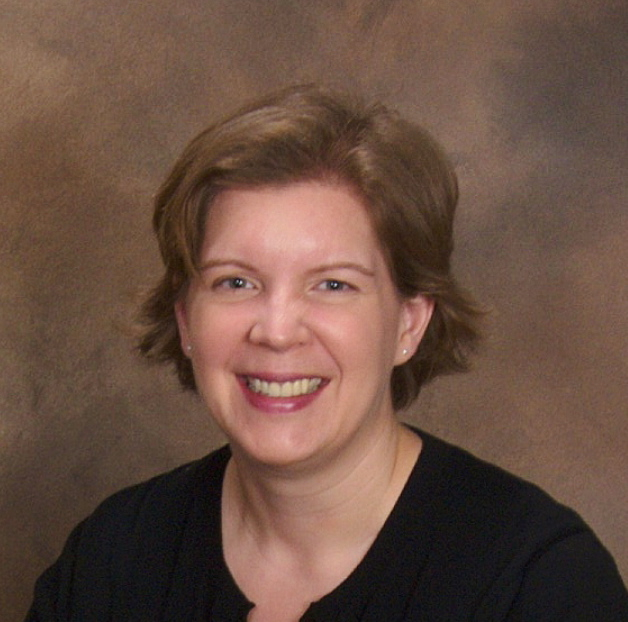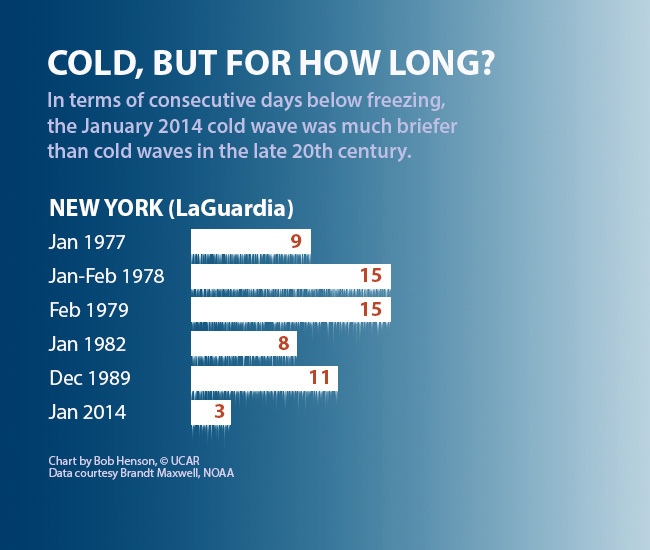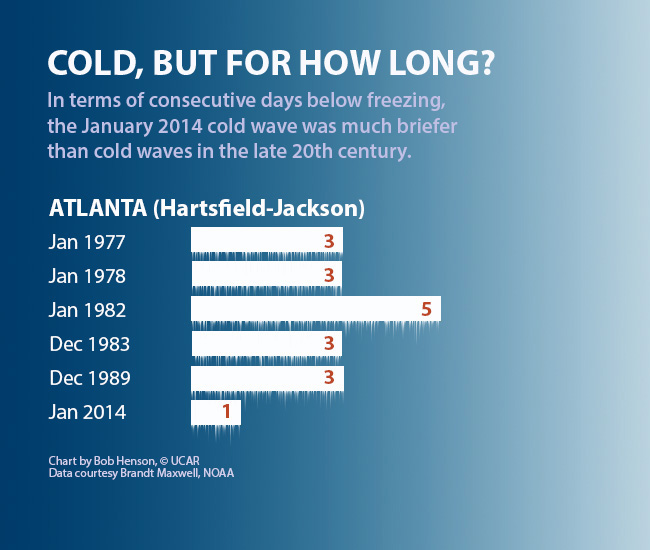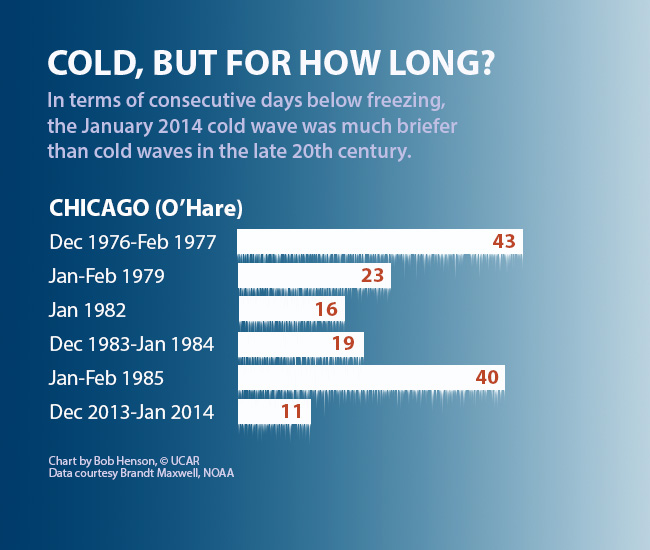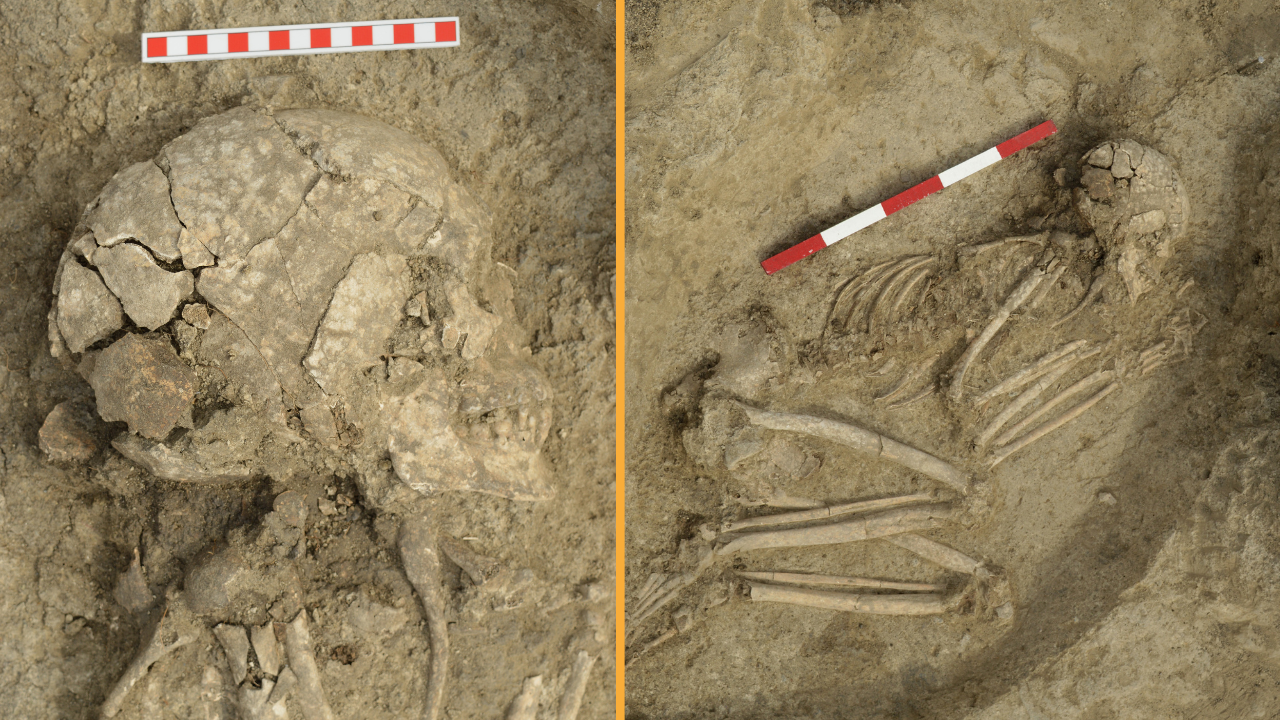'Polar Vortex' Event Paltry Compared to Past Freezes
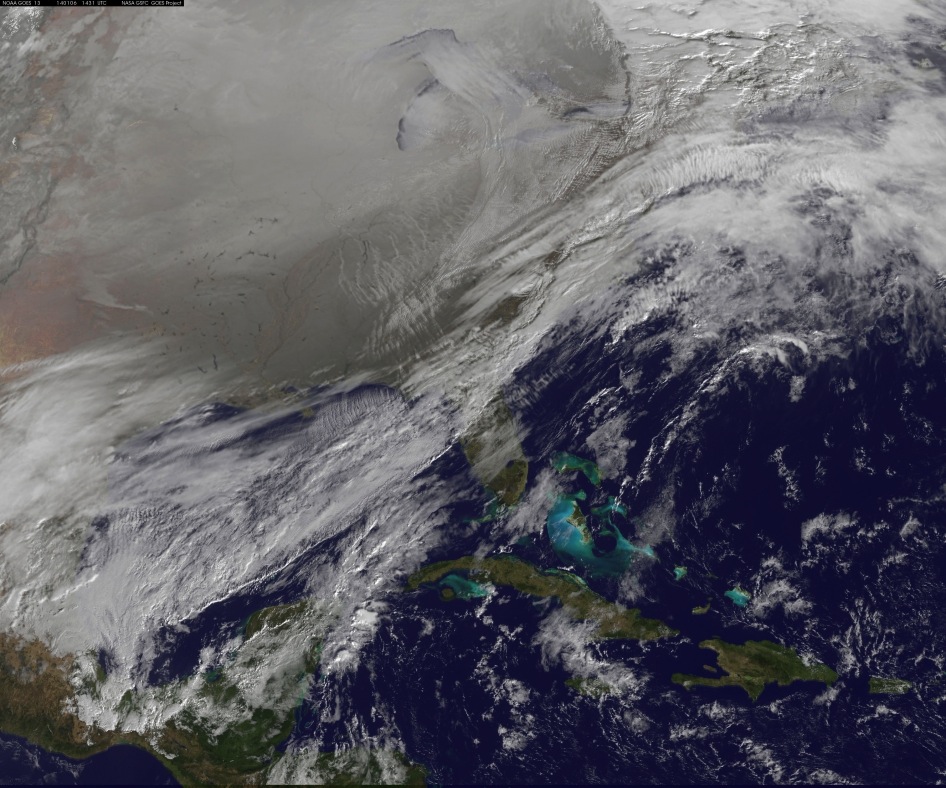
Was the crisp bite of frozen air during this month's polar vortex a remembrance of winters past for Americans? According to weather data collected by one meteorologist, this taste of Arctic chill may be growing rarer.
The cold snap triggered by the polar vortex, the low-pressure weather pattern that rammed into the United States from the Arctic the week of Jan. 5, was pretty paltry compared to cold waves in the past four decades, said Bob Henson, a meteorologist at the National Center for Atmospheric Research in Boulder, Colo.
"If you look at the number of days it stayed cold all day and all night, this cold wave was much briefer than past cold waves," Henson told LiveScience. "There are many ways to measure a cold wave, but the brevity of this one just jumps out."
With warm temperatures quickly returning to states such as Oklahoma, which is in the 50s Fahrenheit (teens Celsius) this week, Henson recently decided to compare the length of the polar-vortex freeze to earlier cold snaps. He worked with data provided by colleague Brandt Maxwell of the National Atmospheric and Oceanic Administration.
For cities including New York, Atlanta and Chicago, this month's deep cold was much briefer than past cold waves, Henson found. The 1970s and the 1980s were the worst of the bunch, with Chicago suffering through 40 days of below-freezing temperatures at least one year during these decades.
"The evidence is anecdotal, but it does point to the interesting possibility that cold waves are getting shorter in the U.S.," Henson said.
While global warming plays a role in the shift from long, bitter cold snaps to shorter Arctic blasts, a climate pattern in the Atlantic Ocean called the North Atlantic Oscillation is also involved, Henson explained. The NAO influences wind direction and atmospheric pressure over the North Atlantic, changing winter storm patterns. The current NAO pattern directs heavy snowfall and severe cold toward the United States and Europe, Henson told LiveScience.
Get the world’s most fascinating discoveries delivered straight to your inbox.
"With global temperatures and cold waves, we don't expect linearity," Henson said. "There's going to be some variability in the mix."
Email Becky Oskin or follow her @beckyoskin. Follow us @livescience, Facebook & Google+. Original article on LiveScience.
